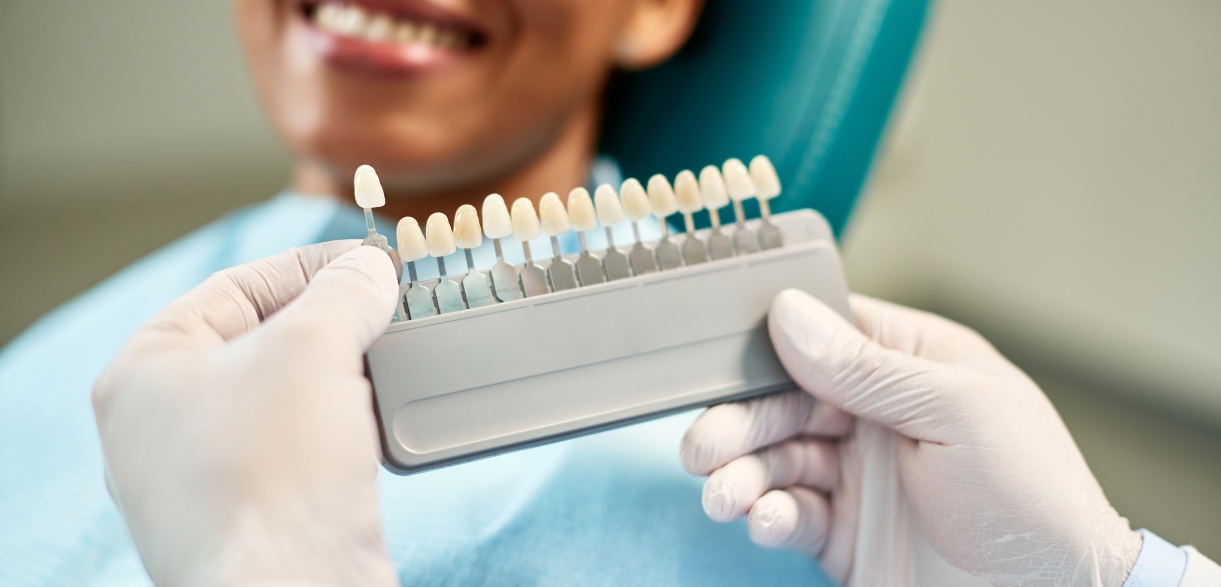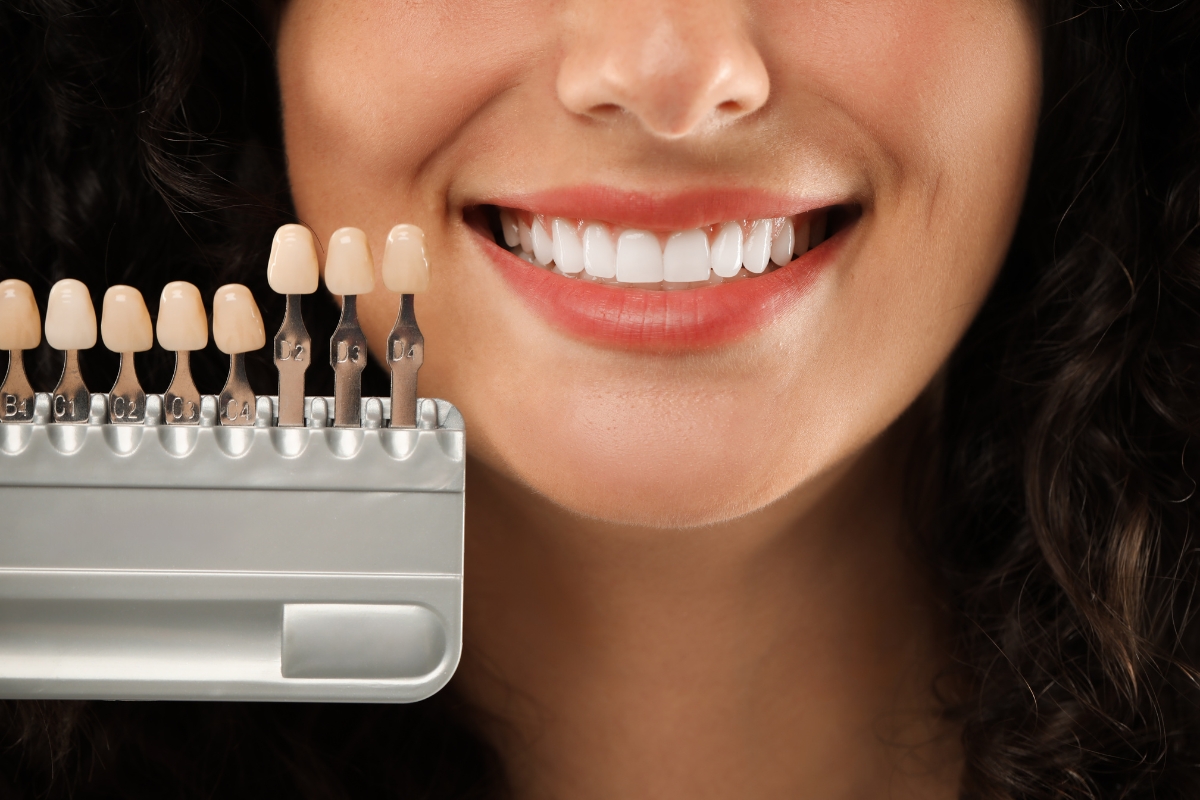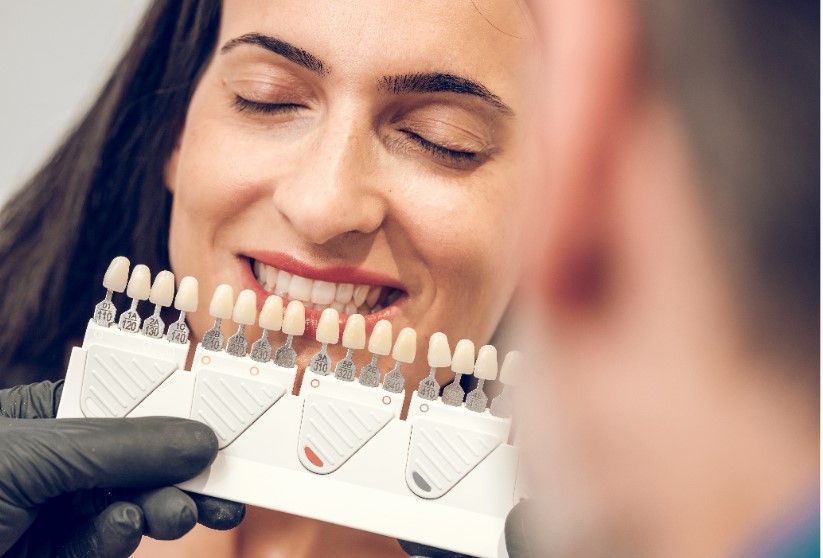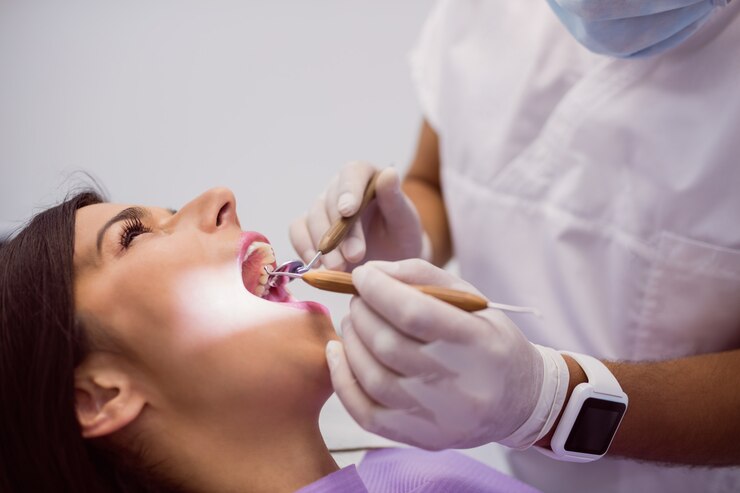
Dental veneers are a fantastic option for transforming your smile with cosmetic dentistry. However, proper aftercare is essential for the best results. Following these guidelines for dental veneers, aftercare can help ensure a beautiful, long-lasting smile. Here’s a detailed guide to maintaining your veneers, focusing on actionable tips for a smooth and effective recovery.
Managing Sensitivity After the Procedure
- Expect Some Sensitivity: It’s common to experience temporary sensitivity after getting veneers. This usually lessens over a few days but can last up to a week for some people.
- Choose Gentle Products: Opt for a toothpaste for sensitive teeth to ease discomfort.
- Avoid Extreme Temperatures: Avoid extremely hot or cold foods and drinks for the first week, as these can increase sensitivity.
Be Cautious with Your Diet
- Soft Foods Are Best: Stick to soft foods to avoid putting pressure on your new veneers after the procedure.
- Limit Staining Foods and Drinks: To keep veneers bright, avoid coffee, red wine, and sauces that can cause staining. If you indulge, rinse your mouth or drink water afterward.
- Cut Back on Hard and Sticky Foods: Nuts, hard candies, and sticky caramel can damage veneers. Chew gently and avoid biting into hard items to preserve the veneers’ integrity.
Wear a Nightguard if You Grind Your Teeth
- Protect Against Bruxism: Grinding or clenching your teeth can damage your veneers. If you grind your teeth at night, talk to your dentist about a custom nightguard to prevent this.
- Sleep Position Matters: Avoid sleeping face down or with pressure on your face, as this could cause accidental grinding and put undue pressure on your veneers.
Stay on Top of Regular Dental Check-Ups
- Schedule Follow-Up Visits: After getting veneers, attend regular check-ups every six months to monitor the veneers’ condition.
- Professional Cleanings Matter: Professional cleanings help keep your smile bright and prevent plaque and tartar from building up around your veneers.
- Ask for Advice: Your dentist can offer additional aftercare tips tailored to your dental and lifestyle needs, making maintenance easier and more effective.
Follow a Diligent Oral Hygiene Routine
- Brush Twice Daily: Use a non-abrasive toothpaste and a soft-bristled toothbrush to avoid scratching the veneers.
- Floss Regularly: Flossing is essential, as food particles can get trapped along the gum line. Veneers don’t protect against gum disease, so keeping the gums healthy is critical.
- Rinse with an Antibacterial Mouthwash: This helps reduce the risk of plaque build-up around your veneers, preserving both your oral health and the aesthetics of your smile.
Handle Stains with Care
- Teeth Whitening Caution: While veneers don’t stain easily, they don’t respond to whitening treatments. If your natural teeth stain, consider whitening treatments before veneer placement.
- Practice Rinsing: For stains from common beverages, rinsing with water can help reduce the impact of pigments that might affect the surrounding teeth, preserving a balanced look.
- Use a Straw: If you consume staining beverages, using a straw can limit contact with your veneers and natural teeth, keeping discoloration at bay.
Limit Tobacco and Alcohol Use
- Avoid Tobacco Products: Smoking can lead to staining and increases the risk of gum disease, which may affect the appearance and longevity of veneers.
- Be Mindful of Alcohol-Based Products: Some mouthwashes contain alcohol, which can weaken the bonding material of your veneers over time. Check labels and opt for alcohol-free products where possible.
- Reduce Alcohol Consumption: Excessive alcohol can erode the bonding composite and weaken the veneers’ adherence to your teeth. Moderation is vital for long-lasting results.
Know When to Contact Your Dentist
- Persistent Discomfort: If sensitivity or discomfort persists beyond a week, consult your dentist in Pittsburgh for advice.
- Chips or Cracks: Accidents happen, and veneers can chip. Reach out promptly if you notice any damage for timely repairs.
- Shifting or Loosening: Veneers should feel secure. If you sense any movement or looseness, schedule an appointment as soon as possible to ensure the veneer’s stability.
Taking care of your dental veneers doesn’t have to be challenging, but it does require diligence and a little extra attention to daily habits. By following these aftercare tips, you’ll enjoy a stunning smile that lasts for years. Our team is here to help you every step of the way. We’ll guide you on how to protect your investment and enjoy the full benefits of cosmetic dentistry.
If you have any questions or need assistance with your veneers, feel free to contact our Pittsburgh dental office for personalized support.





